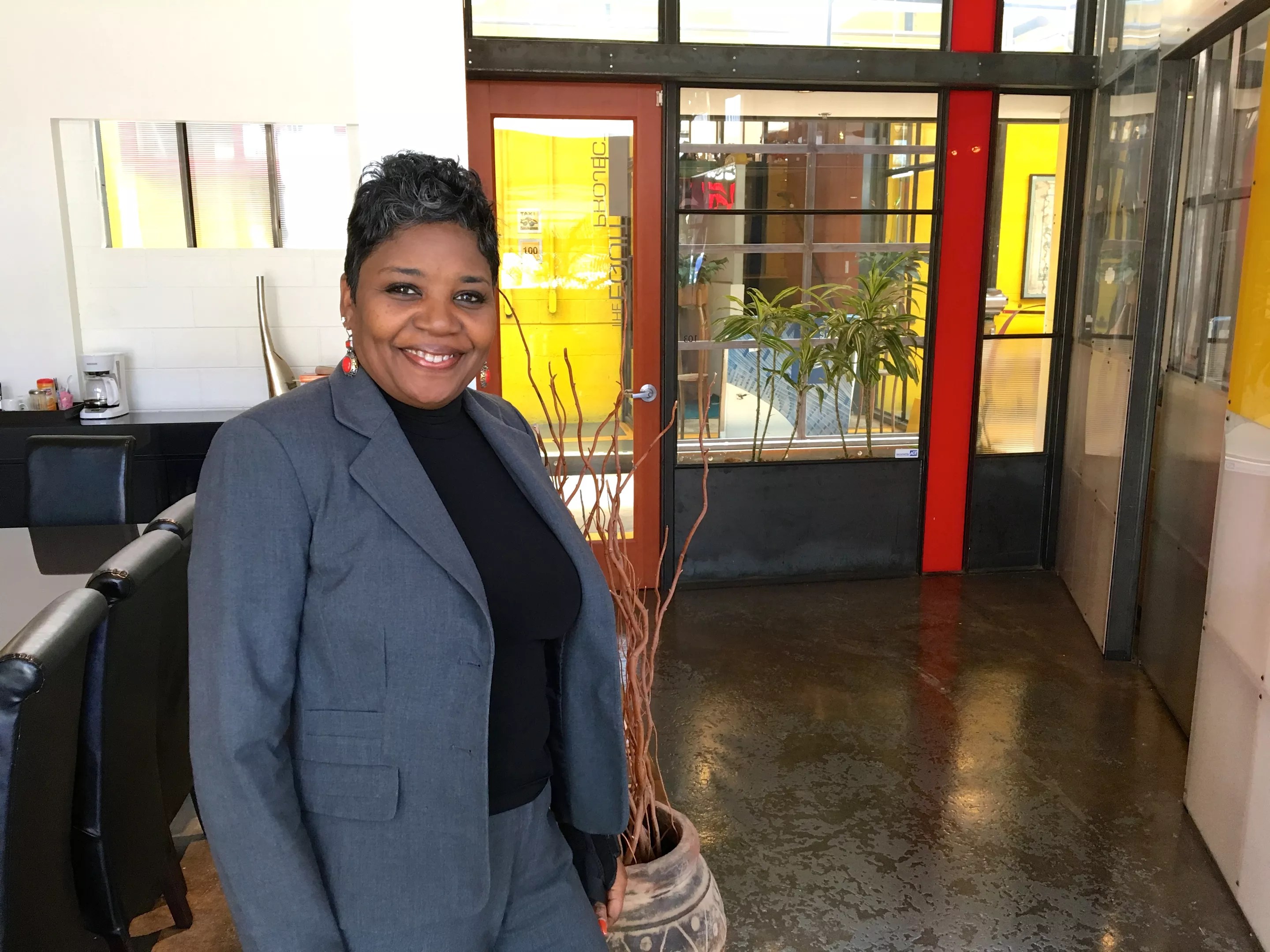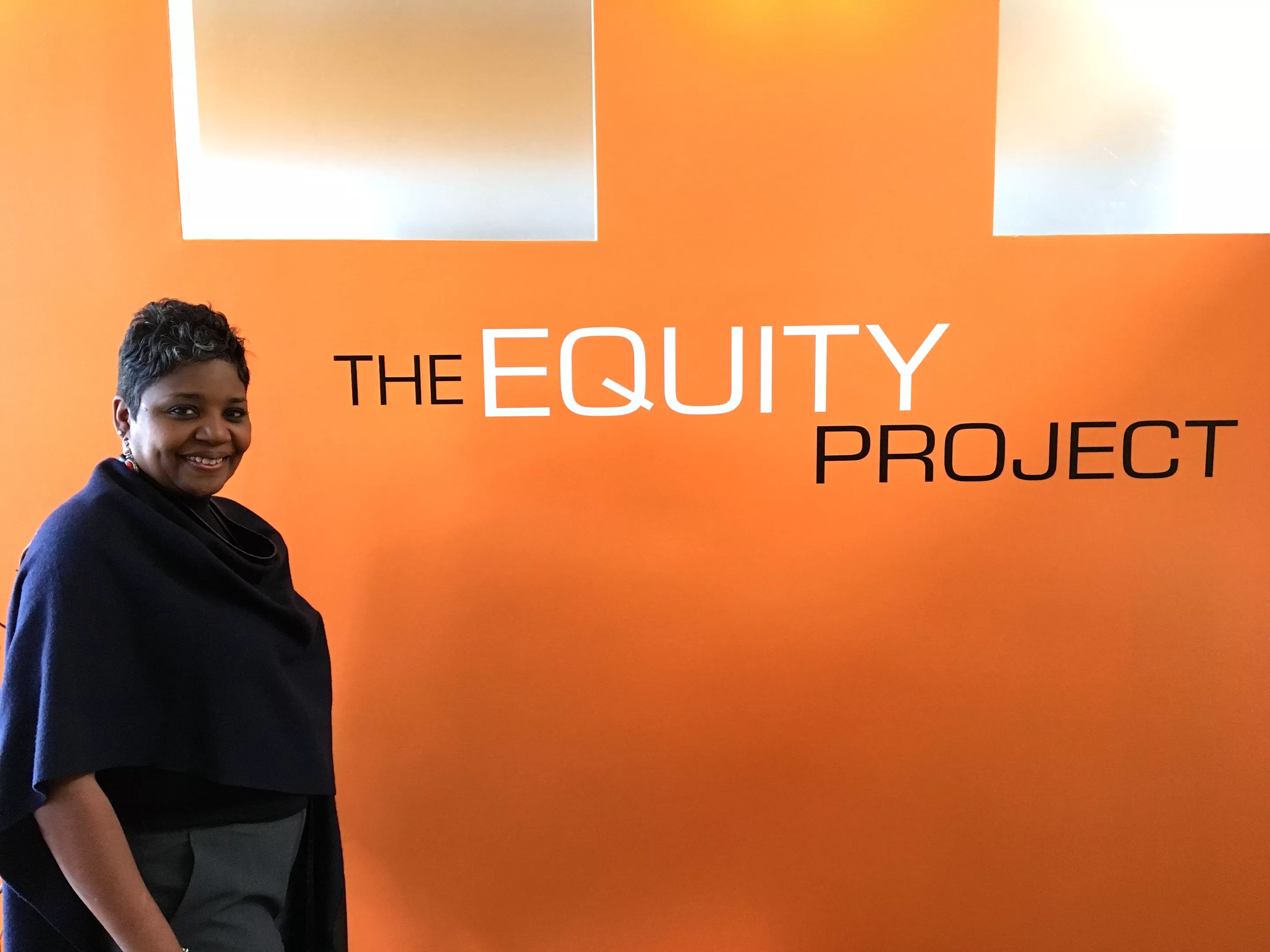
Chris Walker

Audio By Carbonatix
When Nita Mosby Tyler, a Denver-based consultant, was invited to give a talk on diversity and inclusion at Colorado Mesa University in Grand Junction, she knew that she had a skeptical audience on her hands. The white, largely conservative crowd appeared uncomfortable as she went before it to discuss racial parity in the education system.
But after the talk, Tyler says, an older white man came up to her in tears. “‘I’m 62 years old, and nobody has ever said I was part of diversity,'” he told her.
“That’s when I knew the Equity Project was going to happen, because no one in this country should feel like they’re not part of diversity,” says Tyler.
Tyler opened the consulting firm Equity Project in January. Her mission is to help organizations and larger systems – such as school districts – create equity in their workplaces and services.
“‘Equity’ means that we deliver the same services regardless of who shows up for the service,” explains Tyler. “If I show up and you show up, we should expect to get the same thing. But we know that we have an equity problem in all of our major systems – education, health care, the justice system. Given who you are, your experience can be completely different than the person who comes right after you, and that’s what we’ve got to reconcile.”
Tyler believes that one reason that many organizations haven’t achieved equity is because it’s a confusing topic to dissect. “The issue is all of the stuff underneath equity. What does diversity mean? What is inclusion? What is justice? What is fairness?” she asks. “People have confused all of those words and don’t know the difference between them.”
That’s why Tyler believes the man at Colorado Mesa cried at her talk. As diversity training became popular in the 1980s, Tyler says, “we eliminated white people out of the definition of diversity. And when you don’t include people in the definition of diversity, then you can’t jump to inclusion, which is exactly what we did.
“You’re always going to have it as ‘us vs. them’ if it’s built that way,” she adds.
Over the past three decades, Tyler has witnessed many types of problematic diversity and inclusion trainings while working for large corporations and government offices. Among other positions, Tyler was the head of HR at the City and County of Denver, and most recently worked in HR at Children’s Hospital.
“I feel like this is thirty years in the making after being in big organizations and big government systems and learning a lot about what does and doesn’t work with the topics of diversity, inclusion and equity,” she says.
Tyler says that many organizations are taking the first step of reviewing their workforce, website, promotional materials, board and decision-makers to see if they reflect a diverse population.
“[Those] organizations are fine at diversity and inclusion in the old-fashioned way,” she says. “They say, ‘We’ve got people of color, women, gay folks. It’s like Noah’s Ark – we’ve got two of everything.’ But they’re not necessarily thinking about what the bigger system is delivering, only what it looks like.”

Chris Walker
The Equity Project’s first big project is as the lead consultant for an initiative by the Colorado Health Foundation that will build systems of health equity at every school district in Colorado.
Tyler will be helping school districts understand how different populations of kids have different needs from the education system in order to stay healthy and thrive as students. This includes examining areas such as nutrition, exercise, mental health and sexual health.
She plans to come up with a visual aid that will help individual school districts understand whether they’ve been focusing on diversity, inclusion or equity – and what the next steps are to build an equitable system.
“If you had equity work, you’d probably see markedly different interventions based on the people you serve and the data to prove it,” explains Tyler. “There’s [something] intentionally built into a system of equity that says, ‘You know, our black folks that we’re serving have different disparities.’ Let’s address that in our system.”
Tyler is only a one-woman shop so far, working out of a space at the TAXI development in RiNo, but she’s already been in high demand for keynote addresses and additional contracts, including one with the Denver Foundation.
“My intention is [to] branch out beyond Colorado with what I’m doing,” she says. “And I want to deconstruct equity, because I want to deconstruct where we went wrong in our relationships with each other, particularly around race.”